RISE has narrowed the impressive candidate pool of nearly 60 nominations to the top five finalists.
RISE is pleased to announce the finalists for the 2024 RISE Health Care Hero Award. The prestigious honor, presented annually at The RISE Summit on Social Determinants of Health, acknowledges an individual’s effort to make a significant impact on the lives of underserved populations through health care and/or social services interventions, and through superior example of the RISE mission to promote health equity among all patients.
RISE received 59 nominations for this year’s award. The five finalists include:
- Cristina Conlon, care navigator, ReferWell
- Tiffany Davis, executive director quality improvement and health equity, Blue Cross Blue Shield of Illinois – HCSC
- Dr. Kimberlee Wyche Etheridge, primary care provider and assistant professor, Meharry Medical College; sr. VP health equity and diversity initiatives, ASTHO
- Sirene Garcia, CIO, Finger Lakes Community Health
- Megan Shreve, CEO, South Central Community Action Programs, Inc.
The 2024 award recipient will be announced at The RISE Summit on Social Determinants of Health in New Orleans on Tuesday, April 16, the second day of the three-day conference.
RISE spoke with the nominees ahead of the summit to get to know them a bit better…
Cristina Conlon, care navigator, ReferWell

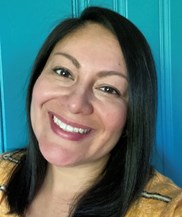 As a bilingual care navigator, Conlon assists both Spanish and English-speaking patients navigate the referral process and schedule appointments using the Referwell System for annual wellness visits and preventative health screenings. Conlon’s support helps close the care gaps for health plan payers and improves health outcomes in designated markets.
As a bilingual care navigator, Conlon assists both Spanish and English-speaking patients navigate the referral process and schedule appointments using the Referwell System for annual wellness visits and preventative health screenings. Conlon’s support helps close the care gaps for health plan payers and improves health outcomes in designated markets.
Conlon has also been entrusted as team lead, overseeing other care navigators by auditing their calls and providing remedial training when necessary.
She attributes the inspiration behind her 20-year-long career in a variety of health care settings to her experiences as an immigrant as a young child.
“My parents and I migrated from Ecuador to the United States when I was a year and a half,” said Conlon. “Neither of my parents spoke English and through the years they had difficulty navigating through their language barriers. At a very young age my parents relied on me to help them translate everything, including doctor’s appointments. So, in a sense, I have been preparing all my life to be a care navigator.”
Tiffany Davis, executive director quality improvement and health equity, Blue Cross Blue Shield of Illinois – HCSC
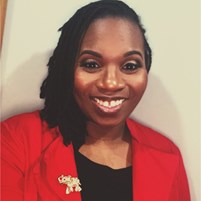 As the executive director of quality improvement and health equity, Davis has the responsibility to co-design, implement, manage, and evaluate programs and interventions that reduce health disparities and inequities in the lives of the Medicaid and Medicare members as well as their communities in a culturally congruent manner. Davis collaborates with network providers, minority and women owned businesses, community-based organizations, and non-profits to implement interventions. She also ensures that the organization has meaningful partnerships and outcomes-based contracts with minority owned businesses that provide services to their Medicaid members.
As the executive director of quality improvement and health equity, Davis has the responsibility to co-design, implement, manage, and evaluate programs and interventions that reduce health disparities and inequities in the lives of the Medicaid and Medicare members as well as their communities in a culturally congruent manner. Davis collaborates with network providers, minority and women owned businesses, community-based organizations, and non-profits to implement interventions. She also ensures that the organization has meaningful partnerships and outcomes-based contracts with minority owned businesses that provide services to their Medicaid members.
The communities she’s called home over the years have cultivated her yearning to help other vulnerable communities and the individuals and families living in them.
“I am from Gary, Indiana –which is an industrial steel town that has been adversely impacted by systemic racism and intentional disinvestment in resources that could improve outcomes in education, public health, affordable and safe housing, and jobs,” said Davis. “However, even with the history of disinvestment, I was poured into by a resilient family and community that instilled strong values around community service, caring for the poor and undeserved, cooperative economics, and using collective voices and resources to drive positive change. My experiences at two historically black colleges, Bennett College for Women and Howard University, further nurtured the seeds planted by my community and empowered me to use my gifts and talents in service to be a resource for the generation behind me and to develop and design solutions that will improve outcomes in my community and in communities similar to mine.”
Dr. Kimberlee Wyche Etheridge, primary care provider and assistant professor, Meharry Medical College; sr. VP health equity and diversity initiatives, ASTHO
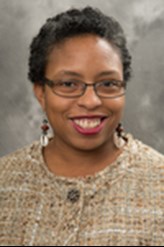 Dr. Etheridge is a primary care provider for the pediatric department as well as an assistant professor at Meharry Medical College. Outside of seeing patients and teaching students, she also works in her community providing education and services to pregnant women and recently delivered families to increase infant and maternal vitality.
Dr. Etheridge is a primary care provider for the pediatric department as well as an assistant professor at Meharry Medical College. Outside of seeing patients and teaching students, she also works in her community providing education and services to pregnant women and recently delivered families to increase infant and maternal vitality.
She is also the sr. VP of health equity and diversity initiatives at the Association of State and Territorial Health Officials (ASTHO), where she works to promote health equity on the national level with organizational members and partners to provide training, coordination, technical assistance, and collaboration with all programmatic areas across the organization.
She’s doing the work she became determined to do as just a young girl.
“My passion roots back to having a brother born prematurely, who never made it home. I was only four, however, I proclaimed at that time that I would be a doctor so that no other family had to say goodbye to their baby,” she said. “Since then, I have always kept my eyes on the prize of eliminating health inequities by dismantling structural racism that compromises health and well-being, as well as identifying how we can do things differently to celebrate what communities are doing well, instead of constantly telling them what they are doing wrong. I live by a glass half full philosophy.”
Sirene Garcia, CIO, Finger Lakes Community Health
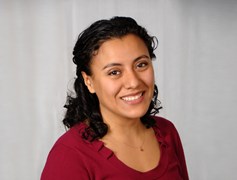 As chief innovation officer, Garcia works to identify ways to leverage current tools and resources in the health care environment to increase access to care and decrease social determinants of health. She also works on the organization’s cultural competency committee to enhance the culture of the organizations so they can be both the employer and provider of choice.
As chief innovation officer, Garcia works to identify ways to leverage current tools and resources in the health care environment to increase access to care and decrease social determinants of health. She also works on the organization’s cultural competency committee to enhance the culture of the organizations so they can be both the employer and provider of choice.
For example, she’s in the process of embarking on a project that will establish a virtual receptionist in their physical environment, providing support to a physical receptionist, with the hopes of addressing workforce disparities of bilingual staff as well as furthering the organization’s continued work in establishing a virtual health center so they can meet their patients where they are.
Though she originally planned to work in the education system as a liaison with bilingual, multicultural families, it was her internship at Finger Lakes Community Health, where she is now chief innovation officer, that made her realize how much she could help others by supporting them as they navigated the health care system.
“I always knew that I wanted to support and help underserved communities,” said Garcia. “Growing up, I experienced what it was like to be in a community where there was a lack of understanding of how systems worked or what resources were available.”
Megan Shreve, CEO, South Central Community Action Programs, Inc. (SCCAP)
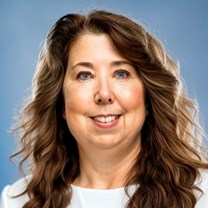 As CEO at SCCAP, Shreve works at the micro and macro level addressing poverty and working toward whole family wellbeing. She has her hand in support services throughout the agency’s communities to address issues such as food insecurity, housing instability, transportation, and economic development. She also works at the state level to further address these critical issues.
As CEO at SCCAP, Shreve works at the micro and macro level addressing poverty and working toward whole family wellbeing. She has her hand in support services throughout the agency’s communities to address issues such as food insecurity, housing instability, transportation, and economic development. She also works at the state level to further address these critical issues.
Shreve also serves as the board chair of the Community Action Association of Pennsylvania and was the past board chair of a local hospital and a regional health system.
“It is a privilege and an honor to do this work,” Shreve said. “Someone’s health directly impacts their ability to stabilize and then thrive. Conversely, someone’s economic stability directly impacts their health. When it is really about the family, the patient, and we understand their journey, our work changes. We must partner better. We must work at the system and community level. We must create a community environment where equity and the social determinants of health (really the social determinants of success) are built in.”
The RISE Summit on Social Determinants of Health will take place April 15-17 at the Hyatt Regency New Orleans. Click here to learn more, including registration and attendance details.
